Egyptian and Kazakh top officials on Sunday reopened the Sultan Baybars Mosque in Cairo, the oldest Mamluk mosque in the country, following 16 years of restoration jointly funded by Egypt and Kazakhstan.
This year coincides with the 800th anniversary of its builder, Sultan Al-Malik al-Zahir Rukn al-Din Baybars al-Bunduqdari (1260-1277), commonly known as Baybars. He was the fourth Mamluk sultan of the Bahri dynasty (1250-1382) of Egypt and Syria. He was of Turkic Kipchak origin.
He built the mosque in 1266. Baybars was famous for his military and diplomatic intelligence. He had a major role in changing the political and military map in the Mediterranean region.
As one of the commanders of the Egyptian forces, he defeated the Seventh Crusade of King Louis IX of France. He also played a role in the Battle of Ain Jalut in 1260, which marked the first substantial collapse of the Mongols and is considered a turning point in history.
Grand Imam of Al-Azhar Ahmed Al-Tayeb, Grand Mufti of Egypt Shawky Allam, Supreme Mufti of Kazakhstan Naurizbay Taganuli, and Kazakhstan’s Senate Chairperson Maulen Ashimbayev attended the opening ceremony.
Al-Zaher Baybars Mosque is the third largest archaeological mosque in Egypt after Ahmed Ibn Tulun Mosque and Al-Hakim Bi-Amr Allah Mosque. The layout of the mosque is similar to the Prophet’s Mosque in Medina in the Kingdom of Saudi Arabia. It is the same layout as that of the Ahmed Ibn Tulun mosque in terms of a courtyard surrounded by four iwans (porticos) and its mihrab (niche) surmounted by a dome. Supreme Council of Antiquities Secretary General Mostafa Waziry said that restoration work on the mosque was started in 2007.
Then the project stopped in 2011 for lack of funds and resumed in 2018 with a groundwater level reduction project. The mosque deteriorated in the time of the French campaign (1798-1801) when they installed cannons and used it as a fortress, he said. In the era of Mohamed Ali in 1816, the mosque was transformed into a factory for the manufacturing of soap and then as a bakery.
Kazakh Ambassador Kairat Lama Sharif previously told The Egyptian Gazette that one of the important joint projects in Egyptian-Kazakh bilateral relations is the restoration of the Sultan Baybars Mosque. “It is a revival of the heritage of the great son of Kazakhstan, which has become a symbol of historical Kazakh-Egyptian ties,” the ambassador said. “The number of Kazakh tourists visiting Egypt is 150,000 tourists per year. With the re-opening of the Sultan Baybars Mosque, the number of Kazakh tourists will be doubled or tripled”, the ambassador said.
Kazakhstan President Kassym-Jomart Tokayev awarded Grand Imam Al-Tayeb with the Order of Friendship in appreciation of his efforts in spreading the values of world peace and human coexistence, and his role in strengthening and consolidating Kazakh-Azhar relations. The order was handed over to him by Kazakhstan’s Senate Chairperson Ashimbayev. Ashimbayev said the commemoration of Baybars’ birthday anniversary is considered an important event for the Egyptian and Kazakh peoples alike.
He added that Baybars contributed a lot to strengthening the Islamic religion and spreading it worldwide. “Reopening of Baybars Mosque today is considered a valuable monument not only for Egypt, Kazakhstan and Egypt, but also for the entire Islamic world, and its restoration was a historic event,” he said.
Minister of Tourism and Antiquities Ahmed Issa said that 6,000 Kazakhs came to Egypt last week. He added that it is expected that from 350,000 to 450,000 Kazakhs will visit Egypt by the end of this year.

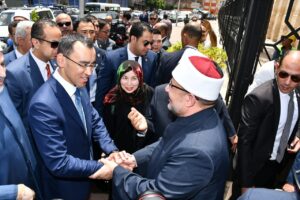


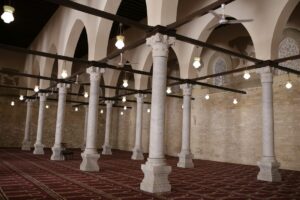
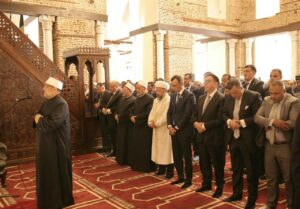
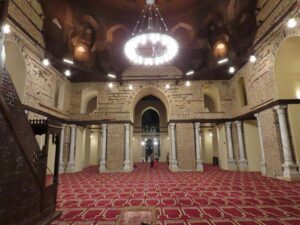
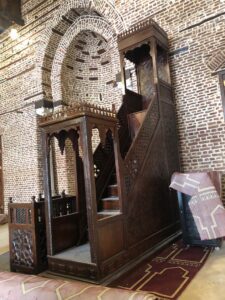



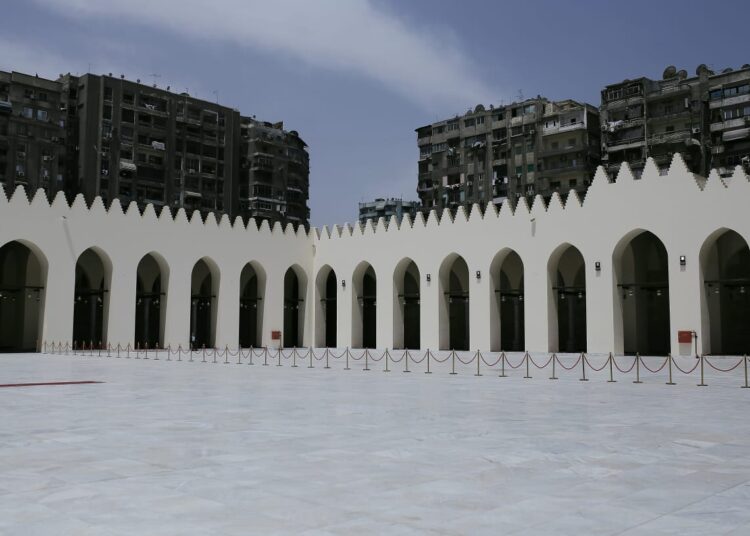


Discussion about this post